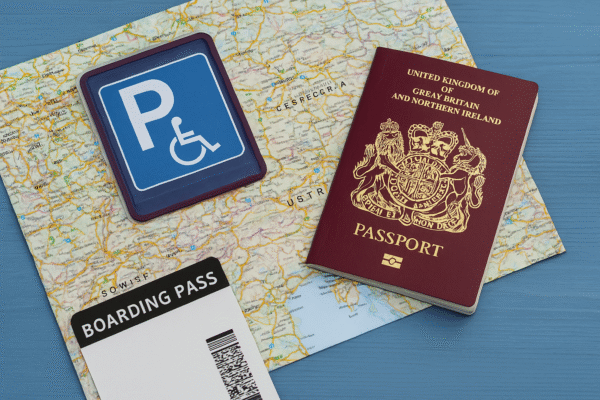This summer and coming autumn, the UK government has refreshed its travel guidance for several Schengen-area countries—Austria, Czechia, France, Greece, Denmark, and Hungary. With evolving visa and passport regulations, wildfire risks in Greece, and new accessibility updates, UK travellers are urged to prepare carefully to avoid complications.
Passport & Visa Rules Across the Schengen Zone
All six destinations now reinforce strict compliance with Schengen entry rules:
- Passport Issuance: Your passport must have been issued less than 10 years before your arrival date.
- Passport Expiry: It must remain valid for at least three months beyond your planned departure from the Schengen area.
- Visa-Free Stays: British citizens can enter visa-free for up to 90 days within any 180-day period for tourism, business, or short-term study.
Travel across any of the six countries must cumulatively not exceed the 90-day allowance. Border officials may request proof of accommodation, insurance, sufficient funds, and a return or onward ticket. Passport stamping on entry and exit is essential to avoid miscalculations or penalties.
These requirements are in line with updated UK government travel advice and widely reported cases of travellers being denied boarding or entry due to misunderstanding or airline staff errors regarding the “10-year rule.” Several incidents have highlighted how even valid passports were rejected because they exceeded the issuance-limit or didn’t meet the three-month validity rule—leaving tourists stranded or out of pocket.
Wildfire and Safety Warnings in Greece
Greece, despite being a perennial favourite, now carries additional warnings. Wildfire risk is notably high between April and October in many regions popular with tourists. Visitors are advised to stay alert through local weather updates and emergency services announcements. Heightened awareness of security, including terrorism risk, is also emphasized.
New Accessibility Info: Blue Badge Use Across Europe
For travellers with mobility challenges, the UK has refreshed guidance on using the Blue Badge abroad:
- Recognition: The badge remains accepted in many EU/Schengen countries, including France, though recognition can vary by locality.
- Variations: Parking concessions differ across regions—some may recognize time limits or display rules that don’t align with UK standards.
- Display Requirements: Always clearly display the badge (right side up), use the parking clock if applicable, and comply with local signs to avoid fines or misuse allegations.
Disabled travellers are encouraged to research local access provisions before departure—for example, via tourist information offices or local authorities in destination countries.
Country-by-Country Summary
Austria & Czechia
Both follow the standard Schengen entry rules. Ensure your passport meets the validity requirements, stay within the 90-day limit, and carry documentation showing your intent and means. Passport stamping is crucial.
France
Same passport and visa-free conditions apply. Many travellers have experienced confusion over airline enforcement of the rules—so double-check expiry and issue dates carefully.
Denmark
Expect similar entry requirements. Some Scandinavian destinations have reported incidents where even compliant passports were rejected by airlines citing local stricter interpretations of the “10-year limit.” Therefore, it’s wise to verify passport age especially when flying to the region.
Hungary
Standard Schengen rules plus additional customs scrutiny. Declare taxable goods, medications, pets, or controlled items, and have necessary documentation on hand.
What Travellers Should Do Now
- Check Your Passport Early
Confirm that it was issued less than 10 years ago and remains valid at least three months after your return. Be aware that earlier renewals may carry extra months, which can still invalidate older-issue passports. - Plan Within the 90-Day Limit
Track all Schengen stays cumulatively to avoid overstaying, which could trigger bans of up to three years. - Prepare Documentation
Carry proof of lodging, travel insurance, return/onward tickets, and evidence of funds. - Monitor Local Alerts, Especially in Greece
Wildfire coverage and security advisories are vital for safe travel. - Understand Blue Badge Use Locally
Research parking and accessibility rules via official or tourist-info channels at your destinations, and always display the badge and clock correctly. - Consider Travel Insurance
Ill-timed passport issues or unexpected travel problems (wildfires, cancellation, missed flight) can be costly—insurance helps mitigate such risks.
Final Thoughts
As UK travellers look forward to summer and autumn escapes across Europe, staying updated on Schengen entry requirements, passport validity, and accessibility provisions is crucial. With new cross-border systems on the horizon (like EES and ETIAS), planning ahead ensures smooth, enjoyable travels. Stay informed, prepared, and ready for seamless adventures abroad.
For more travel news like this, keep reading Global Travel Wire















